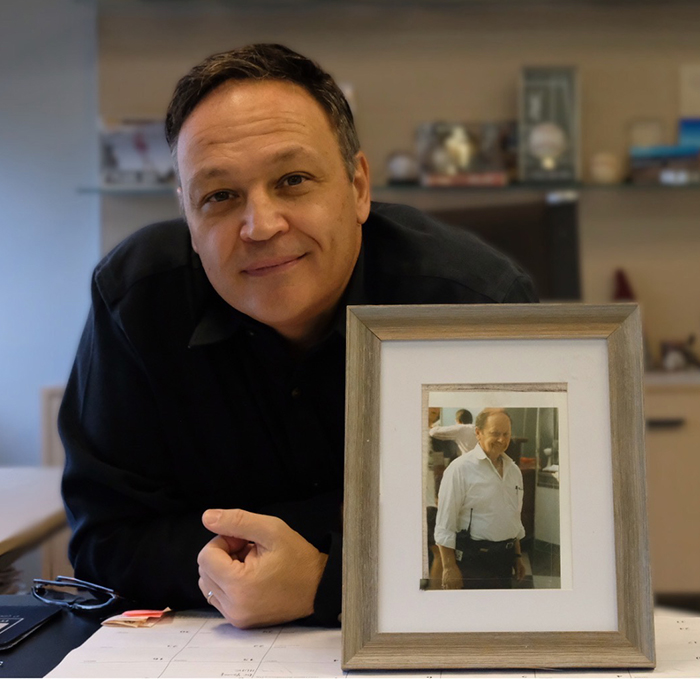Bruno Giaccio

Bruno Giaccio is the CEO and Managing Partner of MetroMultimedia, one of the country’s leading audio-visual production firms with more than 250 employees nationwide.
Bruno Giaccio Sr. was my first show floor mentor. He survived the Nazi invasion of Italy when he was six years old, emigrated to the Bronx before he was 18 and started his own upholstery business before joining the event industry and rising through the ranks.
First as a union decorator and eventually vice president of sales for the country’s largest general services contractor, he was a giant on the show floor, making sure to communicate the importance of the event business, of serving your clients, of bringing people together to share ideas that can change the world.
At home, he was a giant to me and my sister, Ida, relaying decades of experience through heartfelt stories, anecdotes of last-minute decision-making, and most of all, life lessons.
This industry was his second family, and we would regularly have dinners, play card games and even take vacations with co-workers and clients alike. His unbridled enthusiasm fostered my love for our dynamic industry, and that led me from show floor carpenter to CEO – all thanks to his passion and encouragement.

But not everyone has a Bruno Sr. in their corner. That’s why it’s critical for our industry to focus on mentoring the next generation of young leaders, especially in this post-pandemic era. The success of our past provided us with the tools to survive the pandemic’s unprecedented isolation, but our future will be defined by our willingness to adapt to changing trends, recognize evolving client needs and embrace the impact of advanced technology on our face-to-face business.
The younger generation has been raised on the convenience of mobile devices and apps, and they are ready and willing to incorporate new technology at a rapid pace. We should encourage that focus to amplify the reach of each event. From live streaming to immersive digital walls, these additions are creating a more engaging experience for exhibitors and attendees, and that has certainly helped our industry recover from the dark days of the pandemic.
However, these technological tools only work when combined with the traditional lessons from those who came before us. Demonstrating a passion for the details of your work, showing pride in your organization and properly preparing for the task at hand are some basic yet important principles that helped build the foundation of this industry decades ago.
Despite the advent of project-tracking software and data-driven models, industry veterans know that nothing can replace the knowledge of stumbling once in order to succeed the second time around. Producing live events requires nimble teams who are flexible and supportive of each other and the client. Redundancy is the key to ensuring solutions can be created onsite when real-time problems arise. We should all strive to share our own battle-tested book of knowledge with our younger counterparts so they are better prepared than we were.
Today, event attendance is increasing at a steady pace across the nation, and event activity is beginning to reach pre-pandemic levels. The value of in-person meetings is stronger than ever, but the concern about a future global calamity lingers. Therefore, there’s never been a better time to mentor — whether it’s your employees, your business partners or your children — so we can combine the passion of our predecessors with the technology of the next generation. Mentorship in all forms — from formal cross-training sessions to informal conversations after an event — is what will keep our industry nimble if and when the next challenge strikes.
Fifteen years ago this November, my mentor passed away from progressive supranuclear palsy, a rare brain disorder similar to Parkinson’s disease. But his pride and passion for this industry live on — in me.
